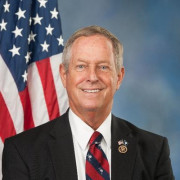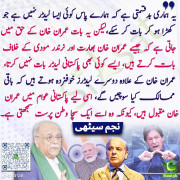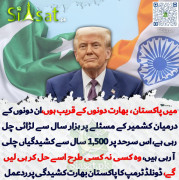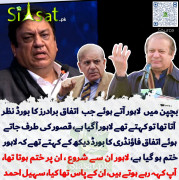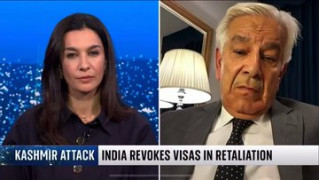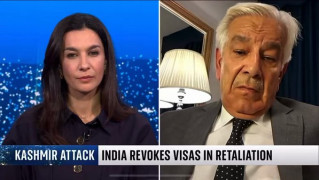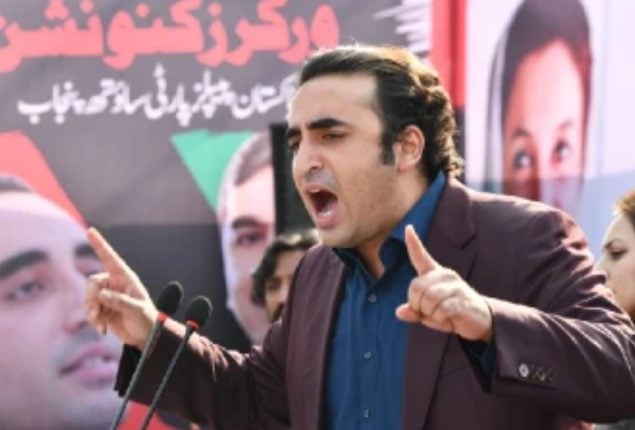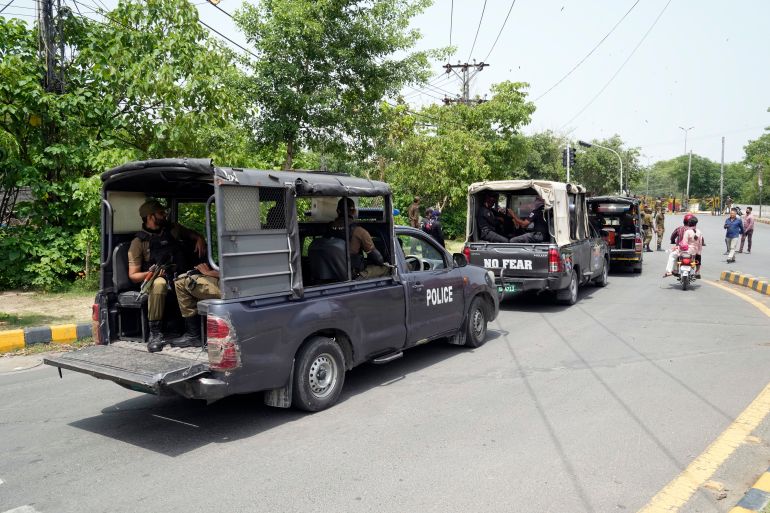Geek
Chief Minister (5k+ posts)
ISLAMABAD — Russia confirmed Friday that it had started exporting oil to Pakistan and had agreed to accept Chinese currency as payment, clarifying that the South Asian country did not receive any exclusive discounts on the purchase deal.
Pakistani Prime Minister Shehbaz Sharif announced Sunday that the first "Russian discounted crude oil cargo" had arrived and offloaded at the port in the southern city of Karachi.
Sharif touted the shipment as "the beginning of a new relationship" between Islamabad and Moscow. His petroleum minister later revealed Pakistan had paid in yuan for the first government-to-government Russian crude oil import.
Russian Energy Minister Nikolai Shulginov said there was no reduced pricing for Pakistan.
"Oil deliveries to Pakistan have begun. There is no special discount; for Pakistan, it is the same as for other buyers," Russian state media quoted Shulginov as telling reporters on the sidelines of an international economic conference in St. Petersburg.
His remarks raised questions about official Pakistani assertions that Moscow had agreed to supply oil to Islamabad at a discounted price under a deal the two sides negotiated earlier this year.
"We agreed that the payment would be made in the currencies of friendly countries," Shulginov said when asked for a response to Pakistani assertions that the trade is taking place in Chinese currency. He also confirmed that the issue of barter supplies was also discussed, "but no decision has been made yet.”
Cash-strapped Pakistan earlier this month allowed its state and private entities to open barter trade with several countries, including Russia, in an attempt to ease pressure on Islamabad's rapidly depleting foreign exchange reserves.
Shulginov said that the two countries had not yet reached an understanding on prices for the export of liquefied natural gas to Pakistan. He noted that "the discussion is about long-term contracts, but so far, we are talking about spot supplies, and spot gas prices are now high."
Pakistan has purchased 100,000 metric tons of Russian crude oil, of which 45,000 tons arrived earlier this week, said Petroleum Minister Musadik Malik. He told the media on Monday that the payment was made in Chinese yuan and said that there would be a reduction in local oil prices in a few weeks. But Malik did not disclose details such as pricing or the discount Islamabad received, as claimed by Sharif.
However, the deal in yuan marked a significant shift in the U.S. dollar-dominated export payments policy as Pakistan faces a cash crunch and default on external debt.
Energy imports make up the majority of the country's external payments. The foreign exchange reserves held by the central bank have dipped to around $4 billion, barely enough to cover a month of controlled imports.
Pakistani Prime Minister Shehbaz Sharif announced Sunday that the first "Russian discounted crude oil cargo" had arrived and offloaded at the port in the southern city of Karachi.
Sharif touted the shipment as "the beginning of a new relationship" between Islamabad and Moscow. His petroleum minister later revealed Pakistan had paid in yuan for the first government-to-government Russian crude oil import.
Russian Energy Minister Nikolai Shulginov said there was no reduced pricing for Pakistan.
"Oil deliveries to Pakistan have begun. There is no special discount; for Pakistan, it is the same as for other buyers," Russian state media quoted Shulginov as telling reporters on the sidelines of an international economic conference in St. Petersburg.
His remarks raised questions about official Pakistani assertions that Moscow had agreed to supply oil to Islamabad at a discounted price under a deal the two sides negotiated earlier this year.
"We agreed that the payment would be made in the currencies of friendly countries," Shulginov said when asked for a response to Pakistani assertions that the trade is taking place in Chinese currency. He also confirmed that the issue of barter supplies was also discussed, "but no decision has been made yet.”
Cash-strapped Pakistan earlier this month allowed its state and private entities to open barter trade with several countries, including Russia, in an attempt to ease pressure on Islamabad's rapidly depleting foreign exchange reserves.
Shulginov said that the two countries had not yet reached an understanding on prices for the export of liquefied natural gas to Pakistan. He noted that "the discussion is about long-term contracts, but so far, we are talking about spot supplies, and spot gas prices are now high."
Pakistan has purchased 100,000 metric tons of Russian crude oil, of which 45,000 tons arrived earlier this week, said Petroleum Minister Musadik Malik. He told the media on Monday that the payment was made in Chinese yuan and said that there would be a reduction in local oil prices in a few weeks. But Malik did not disclose details such as pricing or the discount Islamabad received, as claimed by Sharif.
However, the deal in yuan marked a significant shift in the U.S. dollar-dominated export payments policy as Pakistan faces a cash crunch and default on external debt.
Energy imports make up the majority of the country's external payments. The foreign exchange reserves held by the central bank have dipped to around $4 billion, barely enough to cover a month of controlled imports.
- Featured Thumbs
- https://i.ibb.co/rfzgfSn/oil-shehbaz-sharif-pakistan-one-eee.jpg



